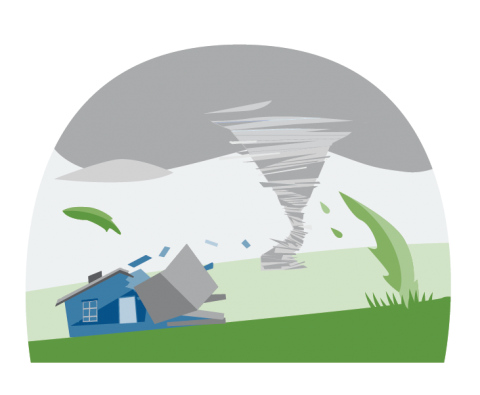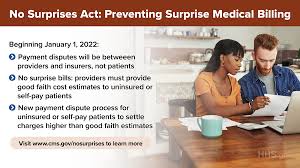What's New
Jo Freeman: There’s Plenty To Do at the RNC – If You Have the Right Credentials
by Jo Freeman
Every national nominating convention has plenty of auxiliary events, some authorized, some not. Getting space can be a challenge; getting the word out even more so. But they do it nonetheless. Press were given a RNC 2024 Master Event Calendar, which was updated a few days later. Events began on Sunday and ended on Thursday. The actual convention sessions were just one item on the list. The calendar said if an event was Open or Closed to press, and also whom to contact to register. I’m going to describe some of the events, including a couple I went to, and a couple I was turned away from.
Since my focus is on women, I obviously wanted to go to those events – if I could.
The National Federation of Republican Women is the largest grassroots Republican women's organization in the country with hundreds of clubs. Founded in 1938, its members made the phone calls and knocked on the doors that elected Republican candidates for decades. It’s Tuesday luncheon featured Arkansas Governor Sarah Sanders. The Master Calendar said it was SOLD OUT and they wouldn’t let me in. I was able to get into their lounge at the Fiserv Forum Wednesday evening, where I was repeatedly asked if I was a member, and if not, would I join. “I’m press,” I said. “I can’t join anything partisan.” I then said: “What brings you here?” On hearing that, finding anyone willing to chat with me was like pulling teeth.
Moms for Liberty met in a concert hall that afternoon. I had pre-registered, and I got in. From high in a balcony seat I listened to several people talk about the evils of transgenderism. It’s webpage says WE BELIEVE Power Belongs to the People. Sound Familiar? With a focus is on parental rights, it wants to “STOP WOKE indoctrination.”
Tuesday I went to “The New Mavericks” reception co-hosted by the Black Republican Mayors Association and the Georgia Republican Party. They honored Sen. Tim Scott, four Congressmen and two Georgia delegates – all male. There was only one mayor on stage, from Aurora, IL. The chair of the Georgia Republican Party was the one white man on the stage. At that event, women served; they didn’t speak. The RNC reported that 55 delegates to the 2024 convention are Black, up from 18 in 2016.
I missed the Independent Women’s Forum toast to “Women Who Make Our Country Great” because I went to Convention Fest: The Official Delegate Experience, which was held in the streets outside the Fiserve Forum and Baird Hall as well as some space inside Baird. To get to that one you not only needed a credential of some sort, but a USSS pass (which I have).
Concerned Women for America parked its pink bus across from the Baird Center the week before the RNC. No one was home. When Convention Fest opened on Tuesday afternoon, they set up a pink tent, from which its leaders preached to whomever passed by. It calls itself “the nation’s largest public policy women’s organization” but its focus is evangelical Christian. The slogan on the side of its pink bus captures this emphasis: “She Prays, She Votes.” A prayer precedes each sermon.
 From Coral Reef Watches to Next-Generation Experimental Products, FEMA Continues Response to Tornado-Damaged Areas
From Coral Reef Watches to Next-Generation Experimental Products, FEMA Continues Response to Tornado-Damaged Areas
https://www.spc.noaa.gov/ ... Storm Prediction Center ... After a disaster, people want to help. To make the most of your contributions, it’s important to follow guidelines for donating and volunteering responsibly. To help survivors in Kentucky, you can donate to the Team Western Kentucky Tornado Relief Fund at http://TeamWKYReliefFund.ky.gov.
Financial contributions to recognized disaster relief organizations are the fastest, most flexible and most effective method of donating. Organizations on the ground know what items and quantities are needed, often buy in bulk with discounts and, if possible, purchase through businesses local to the disaster, which supports economic recovery.
To find a list of trusted organizations that can put your generous contributions to the best possible use, visit National Voluntary Organizations Active in Disaster. more »
 The National Archives: Holding It Together: Before Passwords — Ribbons and Seals for Document Security
The National Archives: Holding It Together: Before Passwords — Ribbons and Seals for Document Security
In the centuries before the self-inking notary public’s stamp, U.S. government clerks and secretaries used brightly-colored silk ribbons, wax seals, and embossed paper seals attached with wafers to verify the security of important documents. Ribbons were used to attach important documents together, but they also served a security function as proof against tampering. The clerk would cut slits in the paper or parchment, weave the ribbon through it, and then the signatories or government official would attach their wax seal, attach an embossed paper seal to the paper with sealing wax or a wafer, or emboss the paper itself. Sealing wax was used for a number of reasons: to verify a document hadn’t been opened, to verify someone’s identity, and for decorative purposes more »
 Jo Freeman Reviews Russell Lee: A Photographer's Life and Legacy
Jo Freeman Reviews Russell Lee: A Photographer's Life and Legacy
Jo Freeman Reviews: The primary narrative is a biography of a man who spent his life taking photographs in order to document America. It’s not a full biography, as the focus is on the years of 1936-42, when Russell Lee worked for the Farm Security Administration. His life before and after is covered only briefly. It includes a biography of Roy Stryker, who was Lee’s boss and friend. A second theme is a history of the FSA’s Historical Section, headed by Stryker, who sent his photographers on assignments around the country. Their initial task was to document the effects of Depression and drought on rural American in order to justify the expenditure of federal funds to remedy problems. As war approached, their task shifted to documenting America’s strength and prosperity in order to convince enemies that it was a formidable foe. more »
 Kaiser Health Foundation: No Surprises Act Implementation: What to Expect in 2022
Kaiser Health Foundation: No Surprises Act Implementation: What to Expect in 2022
The No Surprises Act (NSA) establishes new federal protections against surprise medical bills that take effect in 2022. Surprise medical bills arise when insured consumers inadvertently receive care from out-of-network hospitals, doctors, or other providers they did not choose. Peterson-KFF and other studies find this happens in about 1 in 5 emergency room visits. In addition between 9% and 16% of in-network hospitalizations for non-emergency care include surprise bills from out-of-network providers (such as anesthesiologists) whom the patient did not choose. Surprise medical bills pose financial burdens on consumers when health plans deny out-of-network claims or apply higher out-of-network cost sharing; consumers also face “balance billing” from out-of-network providers that have not contracted to accept discounted payment rates from the health plan.1 The federal government estimates the NSA will apply to about 10 million out-of-network surprise medical bills a year. more »






